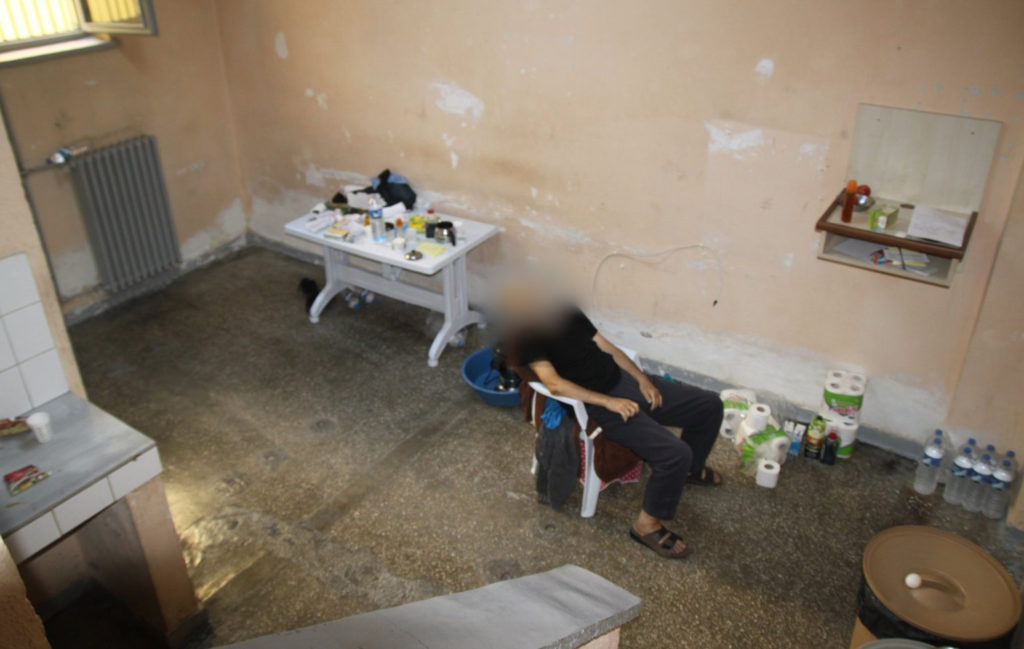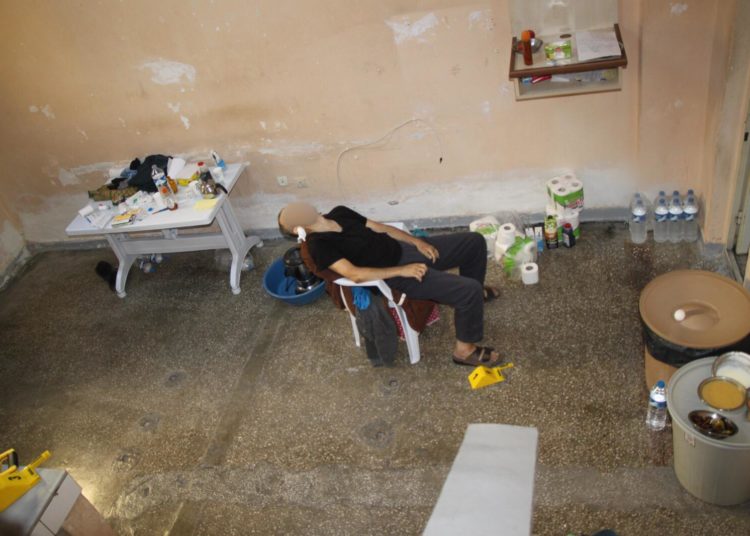Levent Kenez/Stockholm
A delegation from the Turkish Parliament’s Human Rights Committee visited Sweden between May 9 and 13, examining prison conditions in the Nordic country. According to the report prepared by the lawmakers who visited the Swedish Ministry of Justice, Uppsala Probation Center, Sollentuna Detention Center and Österaker Prison and unanimously accepted by the committee, prison conditions in Sweden, “one of the leading countries in human rights,” are worse than in Turkey. Lawmakers from the ruling party argue that the report exonerates the Turkish government, which has often been criticized for severe human rights abuses in prisons.
Committee Chairman Hakan Çavuşoğlu of the ruling Justice and Development Party (AKP) stated during a committee meeting last week that strip-searches are used as a measure in Sweden to trample human dignity and are even turned into a punishment, adding that he wanted to point this out, especially to those who give advice to the Turkish government citing European prison standards.
Turkish prisoners and detainees frequently claim they are harassed by guards who conduct strip-searches and that they are carried out without any reasonable cause as specified in the law. The European Court of Human Rights previously ruled that the strip-search in Turkey has turned into a human rights violation. Finally, in January 2022, the top court ordered Ankara to pay compensation to Elif Kaya, who was punished after she resisted an illegal strip-search.
Moreover, many pious female detainees affiliated with the Gülen movement, declared as a terrorist organization only by the Turkish government, claim that the strip-search is practiced as a method of humiliation and torture.
Upon negative reactions to the conduct of strip-searches even from his own supporters, Turkish President Recep Tayyip Erdoğan made changes to a 2020 regulation on the execution of searches in Turkey’s prisons and detention centers, replacing the words “strip-search” with “detailed search” after several government officials’ denial of the practice in the country.
According to another claim in the report, while surveillance cameras in Turkish prisons only monitor sitting areas for security purposes and emergencies, in the Swedish facilities where the inspection was conducted, guards can see the whole cell with the help of mirrors through a hole in the door, violating the privacy of prisoners since the toilet in the cell is not separated by a folding screen. When the visiting deputies told Swedish prison officials that this was a human rights violation, the Swedes stated that monitoring everything inside the cell was part of security.

Without exception, convicts and detainees in Swedish penitentiaries and detention houses all benefit from one hour a day in the fresh air. The visiting deputies said the open area was very narrow and surrounded by high walls.
Members of the ruling party stated that open areas are surrounded by wires in Swedish prisons, adding that the practice criticized in Turkey is also implemented in Sweden.
In Turkey prisoners are generally allowed to spend time in a small area just outside the cell from morning until evening. Prisoners who have been sentenced to life or disciplinary punishment can benefit from this privilege for only one hour a day.
The deputies said that Swedish prisoners are counted five times a day, while head counts are done twice a day in Turkish prisons. Muslim convicts are not supplied with halal food in Swedish prisons. The ban on smoking in Swedish cells was also mentioned as a negative at the committee meeting.
According to the report, prisoners and detainees taken to the hospital are handcuffed, similar to the practice in Turkey, and their handcuffs are removed if deemed appropriate by the doctor.

Physical attacks, torture and ill-treatment, threats, beatings, strip-searches, violation of the right to health care, crowded cells and arbitrary bans in Turkish prisons are widely covered on social media, where dissidents can make their voices heard. Relatives often claim that arbitrary punishments are imposed in order to prevent prisoners from benefitting from their right to supervised release and that this right is made more difficult for government critics to take advantage of.
In addition, sick prisoners who are unable to take care of themselves, whose stay in prison prevents their accessing treatment and who are elderly are often on the agenda of human rights defenders.












